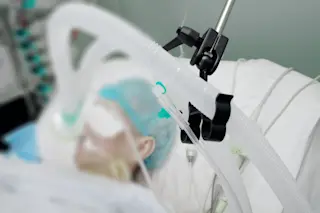(Credit: sfam_photo/Shutterstock) New research from scientists at the University of Copenhagen and Yale University may offer a simple, yet powerful way to pull back the curtain on the true status of patients in a coma. Using a type of Positron Emission Tomography (PET) scanning, the researchers say they were able to predict with 94 percent accuracy whether a coma patient would wake up. Typically, determining who will emerge from a coma is based on a doctor's bedside exam, and they often make mistakes. They measured patients' brain activity using a specialized camera that detected emissions from a radioactive glucose analogue that was introduced into their brains. Glucose is what the brain gets its energy from — literally brain food — and by observing how much of the glucose was metabolized in the brain, the researchers were able to see how active the brain actually was.
Researchers studied 131 patients in ...














